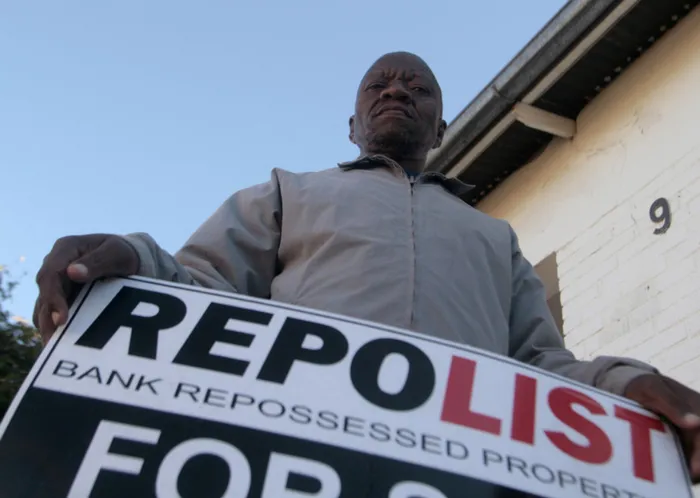
Zanesile Nzolo's house was repossessed. Many of these people had their homes auctioned off for as little as 10% of their market value, with some homes being auctioned by the banks for R1 000 and even less, and they have been homeless and destitute for over a decade while the banks recovered their debts.
Image: Eugene Arries
South Africa’s major banks will finally defend themselves in court over claims that they repossessed hundreds, if not thousands, of people’s homes and sold them far below market value, cheating them of the earned interest on those properties over years.
This comes as the South Gauteng High Court in Johannesburg has set down the matter, which is a R60 billion class action suit, against the country’s major banks to be heard in February 2026,nearly a decade after it was launched in 2017.
This legal challenge aims to hold financial institutions accountable for prioritising profit recovery above the rights and dignity of homeowners.
Advocate Douglas Shaw from Banking Law Advisor and the claimants’ representative confirmed to Business Report on Tuesday that the matter has indeed been set down for February 2026 at the South Gauteng High Court in Johannesburg.
Shaw said all the main papers in the matter had been filed for 2000/2001 [the dates ] including the founding affidavit and the answering affidavits from the four banks, and his replying to all of them.
“The kind of papers that are being filed now are additional people who have said [they] want to be part of this. And they filed supplementary affidavits, many of them confirming. That's being filed now and now they're asking us to justify why they should be allowed, which of course they should be because it's not like a normal case, it's like class action,” Shaw said.
“There's people all over the country that you've never met before that say, “oh my goodness, is this happening? Let me tell you what happened to me”. So the main papers are definitely filed. We've got dates for the heads of argument to be filed. So that's still to happen in the next month or two, and then we'll have the hearing in February next year.”
However, the court must first decide whether the class can be ‘certified’, a formal process that would allow the complainants to sue as a single entity.
According to Shaw, the right thing to do for the banks is to pay the people in the class action as soon as possible and to come to an arrangement regarding those who are not yet part of the class action.
Many of these people had their homes auctioned off for as little as 10% of their market value, with some homes being auctioned by the banks for R1 000 and even less, and they have been homeless and destitute for over a decade while the banks recovered their debts.
Most of these people are poor and not able to recover their losses after losing their homes to banks such as Absa, Standard Bank, FirstRand Bank, and Nedbank.
Up to 2017, the banks were selling houses at sheriff auctions, without a reserve price, thus leading to substantial losses and the owners still owing large sums to the bank after the auction. In 2018, the court altered the rules to include reserve prices for properties to be sold by auction by a bank.
The banks are opposing the application and they deny any wrongdoing. FirstRand Bank, in a sentiment shared by the other banks, said in its opposing papers that there is a notion that the banks sell properties on auctions recklessly and without regard to the property owners, which is “simply not true”.
Meanwhile, the Lungelo Lethu Human Rights Foundation has condemned what it describes as a growing trend of banks swiftly taking legal action against homeowners, even in instances where borrowers are actively trying to settle their debts.
Nkululeko Xhelithole, President of the Lungelo Lethu Foundation, expressed his deep concern over the distressing reality that many homeowners face.
Xhelithole criticises the banks for their lack of willingness to engage in meaningful dialogue with clients before resorting to litigation, a situation he believes exacerbates the struggles that many South Africans face in retaining their homes.
“People are losing their homes after paying off their bonds for 15 or even 17 years. Suddenly, after a few missed payments, the house is sold without any real effort to explore alternatives,” Xhelithole said.
“Before 2018, homes were sold at what we call 'footsteps', often at a fraction of what they were worth. After we took the banks to court that year, it was ruled that homes must be sold at market value. But the problems haven’t ended.”
BUSINESS REPORT